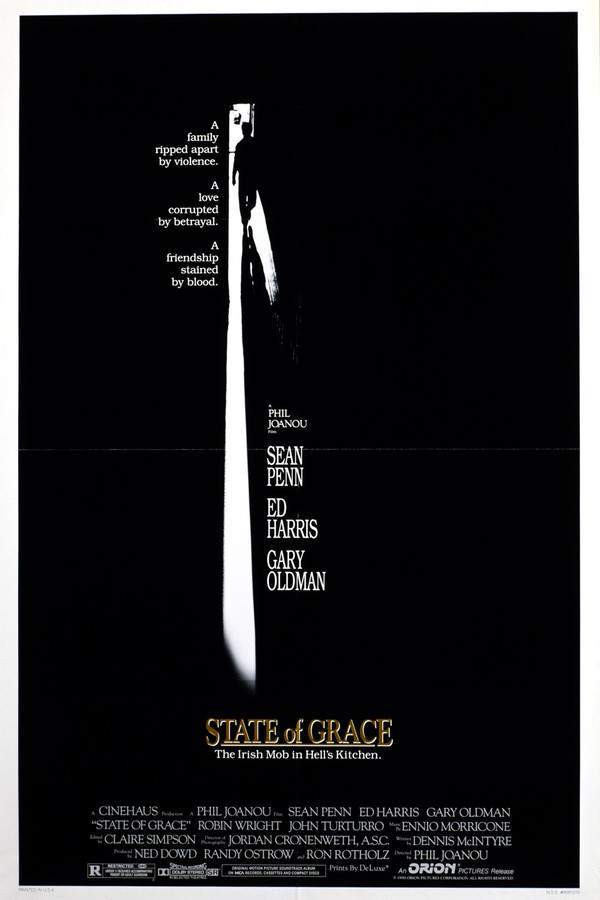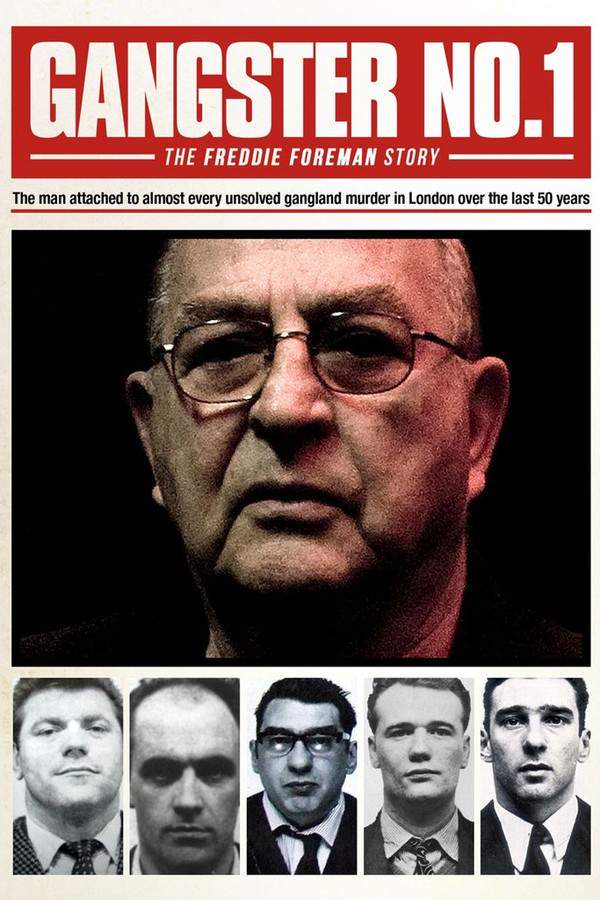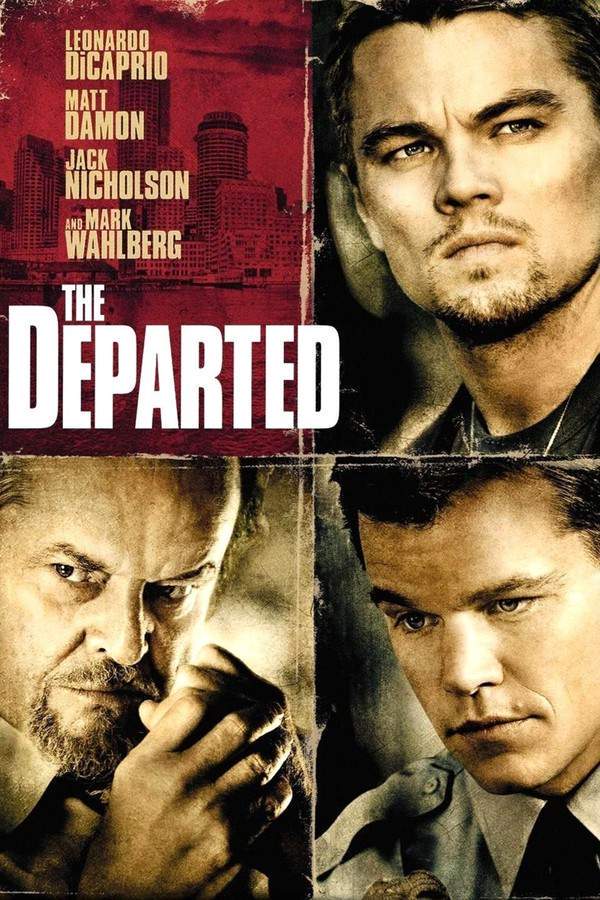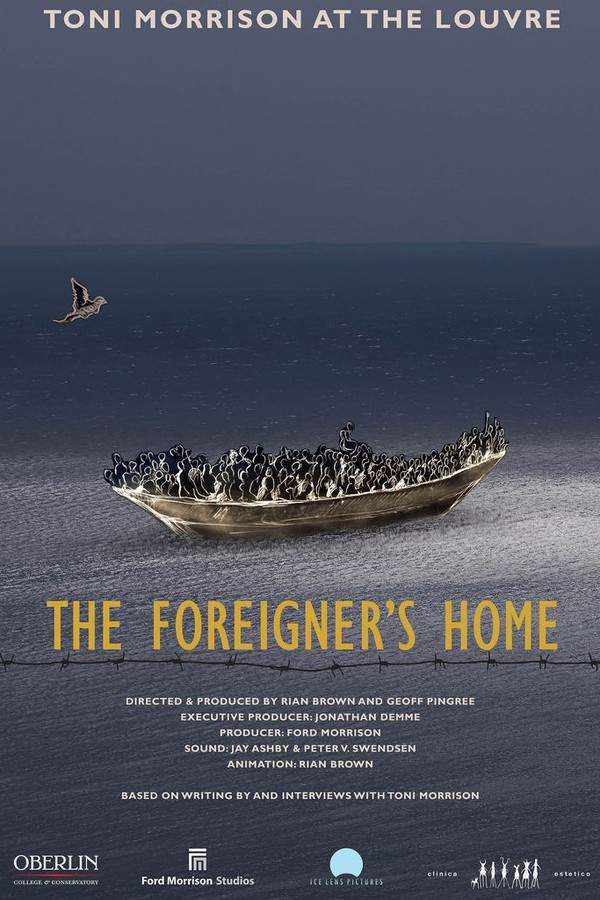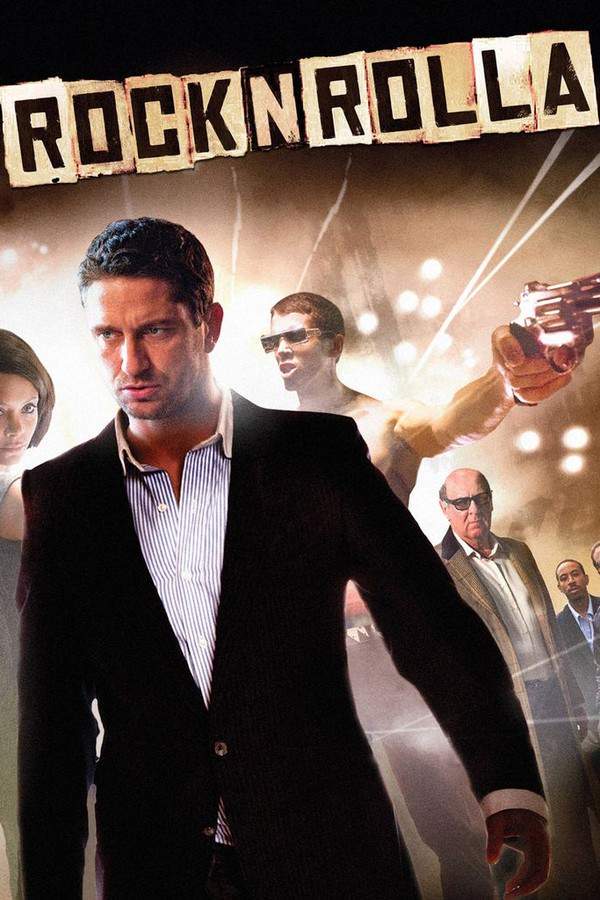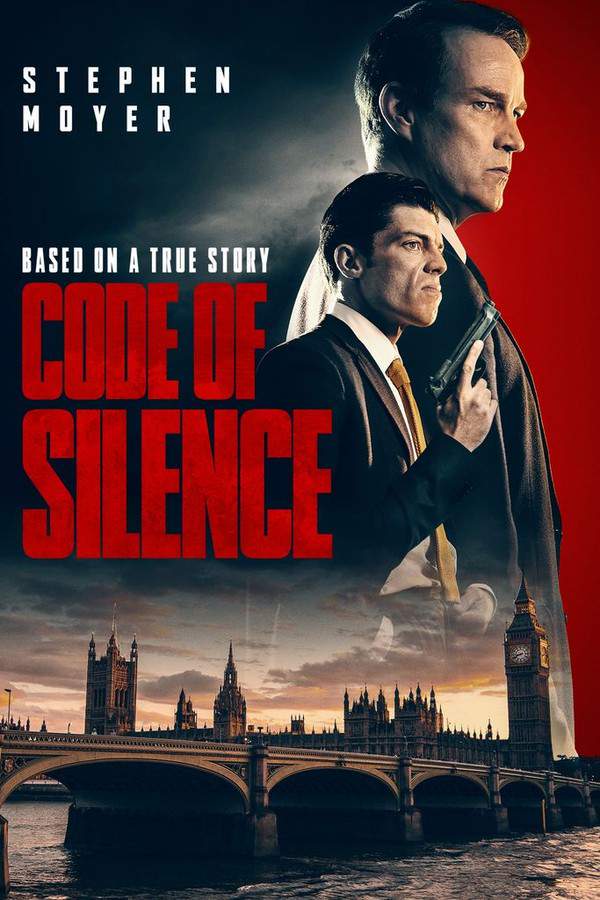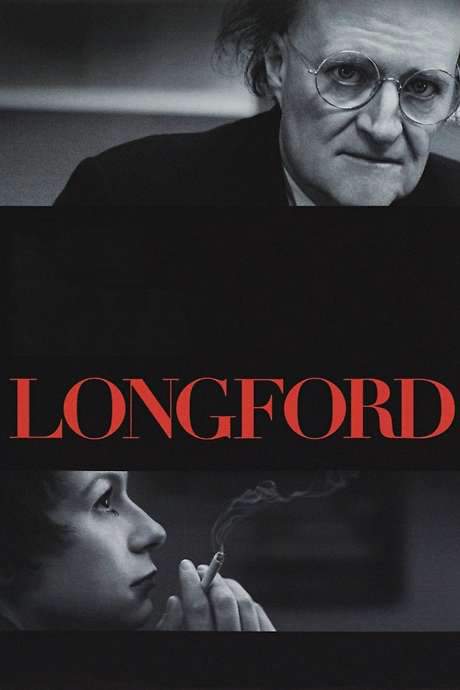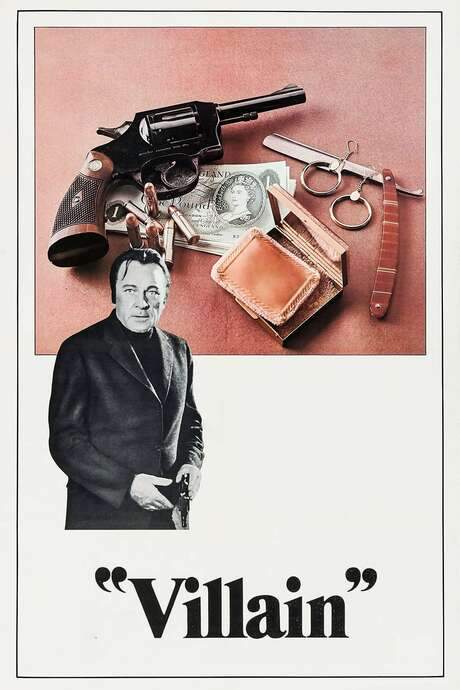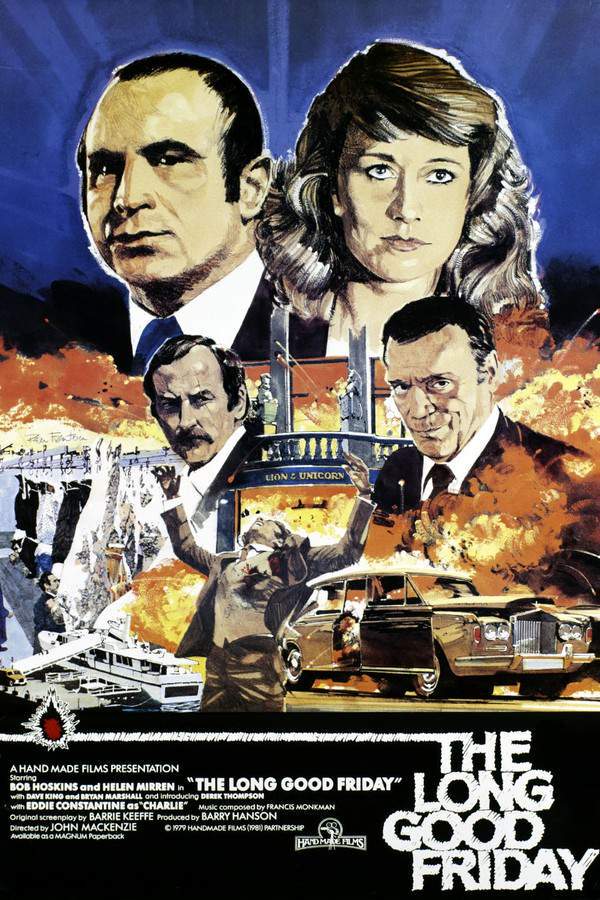
The Long Good Friday 1982
Directed by

John Mackenzie
Made by

HandMade Films
Test your knowledge of The Long Good Friday with our quiz!
The Long Good Friday Plot Summary
Read the complete plot summary and ending explained for The Long Good Friday (1982). From turning points to emotional moments, uncover what really happened and why it matters.
A dubious figure, Colin, is seen making a precarious money drop, hastily pocketing some cash from a suitcase before the deal. Meanwhile, in a secluded farmhouse, three men are in the process of splitting the cash when they are ambushed by gunmen. Outside a local pub, Colin’s accomplices are snatched away and meet a grim fate. Tragically, Colin meets his end at a swimming pool shortly after.
The narrative unfolds further to reveal the dominant gangster of the London underworld, Harold Shand, in what is regarded as Bob Hoskins’ breakout role. He is in the midst of orchestrating a lucrative alliance with a group of wealthy, dubious Americans to fuel the exceptionally profitable London docklands development flourishing in the 1980s.
On Good Friday, while Shand’s mother is at church, her waiting chauffeur is killed when a devastating explosion obliterates her car. The news sends shockwaves through Shand, who is furious about the deteriorating code of conduct within the criminal world. This decline starkly mirrors the gradual decay of his own empire throughout the film. Faced with an ultimatum to rectify the situation within a mere 24 hours or risk losing the Americans’ backing, Shand’s pressure mounts.
The tension escalates when Shand learns of his friend Colin’s murder as well as the shocking discovery of a bomb at his casino, which fortunately fails to detonate. In an effort to cover up Colin’s death, the car bomb incident, and another explosion at a restaurant where he planned to dine, Shand frantically mobilizes informants and various underworld leaders, keen on unearthing the masterminds behind these traumatic events. Though his methods are ruthless, Shand insists that his actions abide by civil conventions.
As he navigates through the chaos, he expresses deep-seated grief over the erosion of neighborhoods, loss of reverence for the church, and the diminishing respect for his power and honor in an increasingly dismal England. Despite this, he professes a profound appreciation for the country’s rich history and feels compelled to create magnificent structures on the sites of abandoned dockyards.
Shand uncovers that the bombings are orchestrated by the IRA, retaliating for the relatively insignificant theft of £5,000 by Colin. It also becomes evident that the three men from the farmhouse earlier were linked to the IRA. The IRA make a connection between Shand and Colin, as the latter was acting as a courier without Shand’s awareness. Shand’s right-hand man chillingly informs him that attempting to confront the IRA is futile, stating, “they’re fanatics,” and emphasizes that eliminating a few will only lead to many more arising in their place. This ominous revelation indicates an inescapable takeover of Shand’s empire by the IRA.
In a desperate bid to regain control, Shand agrees to meet with the IRA under the guise of making a payment of £60,000, but instead, he ambushes and kills them. Despite his violent maneuver, the Americans abandon the deal, deeming him merely a gangster. In a final confrontation, he admonishes them for their lack of guts and vision, declaring he will turn his sights towards the Germans and will not be deterred. However, as he exits the meeting, the tables turn; he is captured by the IRA, marking the definitive end of his reign.
The Long Good Friday Timeline
Follow the complete movie timeline of The Long Good Friday (1982) with every major event in chronological order. Great for understanding complex plots and story progression.
Colin's Dubious Money Drop
Colin is seen making a precarious money drop, quick to pocket some cash from a suitcase before the intended deal. This sets the stage for a chain of violent events that follows in the underbelly of London's criminal world.
The Ambush at the Farmhouse
In a secluded farmhouse, three men attempt to split the cash they received, but their efforts are abruptly interrupted when they are ambushed by gunmen. This ruthless attack signifies the dangers that lurk in the criminal underworld.
Colin's Accomplices Capture
Outside a local pub, Colin’s accomplices are snatched away by unknown assailants, meeting a grim fate shortly after. Their disappearance hints at the increasing violence enveloping the criminal factions in London.
Colin's Fatal Encounter
Colin meets a tragic end at a swimming pool shortly after the events at the farmhouse and pub. His death marks a significant loss for the remaining gangsters as they navigate their tumultuous environment.
Harold Shand's Ambitions
Harold Shand, the dominant gangster of the London underworld, is introduced as he seeks to orchestrate a lucrative alliance with wealthy Americans. He aims to capitalize on the booming docklands development of the 1980s, establishing himself firmly in the criminal hierarchy.
Explosion on Good Friday
On Good Friday, while Shand’s mother attends church, a devastating explosion erupts, obliterating her waiting chauffeur and car. This incident heightens Shand’s fury over the declining code of conduct in the criminal world and directly impacts his business dealings.
Shand's Ultimatum
Following the explosion, Shand receives an ultimatum: rectify the collapsing order of the criminal world within 24 hours or face losing the support of his American partners. This ticking clock intensifies the pressure on him and his operations.
Discovery of Colin's Murder
Shand learns about Colin's murder, which deepens the chaos surrounding him. He is also made aware of a bomb planted in his casino, which fortunately fails to detonate, adding to the series of threats against his empire.
Mobilizing Informants
In an attempt to regain control, Shand mobilizes his informants and gathers underworld leaders to uncover the masterminds behind the string of violent incidents. His desperate search reflects his determination to uphold his power.
Grief for the Erosion of England
Amidst the turmoil, Shand expresses his grief over the neighborhood decay and declining respect for both the church and his own power. He reflects on the lost reverence for England's history while striving to create grand structures on abandoned sites.
The IRA’s Retaliation
Shand uncovers that the IRA is behind the bombings aimed at him, responding to the trivial theft of £5,000 by Colin. This revelation intensifies the ongoing feud, forcing Shand to confront the reality of the threat posed by the IRA.
The Futility of Confronting the IRA
Shand's right-hand man chillingly advises against confronting the IRA, warning that they are 'fanatics'. This moment signals the growing understanding that the IRA's influence in London is a formidable force that can't be easily combated.
The Meeting with the IRA
In a desperate bid to reclaim his authority, Shand agrees to meet the IRA under the pretense of making a payment. Instead, he ambushes them, showcasing his willingness to resort to violence to maintain control in his realm.
The Americans Abandon Shand
Despite his violent maneuver against the IRA, Shand finds himself abandoned by the Americans who now view him as merely a gangster. This shift marks a significant turning point in Shand's quest for legitimacy in the criminal underworld.
Shand's Capture
In a tense turn of events, following his confrontation with the Americans, Shand is ultimately captured by the IRA. This climactic moment signifies the definitive end of his reign and the fall of his power in London.
The Long Good Friday Characters
Explore all characters from The Long Good Friday (1982). Get detailed profiles with their roles, arcs, and key relationships explained.
Harold Shand (Bob Hoskins)
Harold Shand is characterized as a dominant and ambitious gangster, deeply entrenched in London's criminal underbelly. His desire for power leads him to broker underworld deals, yet he grapples with the erosion of respect and authority as violent conflicts escalate. Despite his ruthless nature, Shand has a complex personality marked by moments of introspection and longing for the past.
Colin (Paul Freeman)
Colin serves as a secondary character whose dubious actions and tragic fate propel the narrative forward. As a courier for Shand, his decisions lead to deadly repercussions, unveiling the risks involved in the criminal world. His demise is a stark reminder of the violent consequences that arise from the dualities of loyalty and betrayal.
The Long Good Friday Settings
Learn where and when The Long Good Friday (1982) takes place. Explore the film’s settings, era, and how they shape the narrative.
Time period
1980s
Set in the 1980s, this period is characterized by economic transformation and the rise of organized crime within the UK. The decade saw significant shifts in both social and political landscapes, leading to increased tensions, particularly involving groups like the IRA. During this tumultuous era, the struggle for power and the battle for respect shape the narrative of the film.
Location
London, England
The film takes place primarily in London, with a particular focus on its thriving docklands development during the 1980s. Known for its historical significance and bustling trade, this area represents both opportunity and the undercurrents of criminal activity. London serves as a backdrop to Harold Shand's ambition and the subsequent chaos surrounding his empire.
The Long Good Friday Themes
Discover the main themes in The Long Good Friday (1982). Analyze the deeper meanings, emotional layers, and social commentary behind the film.
💰
Greed
The theme of greed runs rampant throughout the film as characters vie for power, wealth, and respect. Harold Shand's relentless ambition drives him to forge alliances that ultimately unravel. The film critiques how greed can lead to moral decay and the destruction of community values.
⚔️
Conflict
Conflict is a central theme, not only in the violent confrontations between Shand and rival factions but also within Shand's own empire. As he navigates betrayals and threats from the IRA, the film illustrates the broader struggles of lawlessness versus order in a chaotic urban environment.
🕊️
Loss
The sense of loss permeates the film, reflected in Shand’s grief for lost friendships, the decline of his power, and the disappearance of traditional values. The narrative starkly highlights the emotional toll of violence within the criminal underworld and its impact on familial and community ties.

Coming soon on iOS and Android
The Plot Explained Mobile App
From blockbusters to hidden gems — dive into movie stories anytime, anywhere. Save your favorites, discover plots faster, and never miss a twist again.
Sign up to be the first to know when we launch. Your email stays private — always.
The Long Good Friday Spoiler-Free Summary
Discover the spoiler-free summary of The Long Good Friday (1982). Get a concise overview without any spoilers.
In the gritty underbelly of 1970s London, the city teeters between the decay of old‑world traditions and the promise of a new, gleaming future. The docks, once the lifeblood of a thriving empire, stand as a symbol of both opportunity and ruin, their fog‑filled warehouses echoing with whispers of power and ambition. Amid this restless landscape, the streets pulse with a tense mix of reverence for the past and the restless drive toward modernity, setting a tone that is equal parts noir and restless optimism.
- Harold Shand * carries the weight of the London criminal hierarchy on his broad shoulders, a man whose reputation is built on ruthless efficiency and an unshakable vision. Though he reigns over a sprawling empire of illicit enterprises, his true obsession lies in transforming that shadowy dominion into something respectable—real estate, legitimate commerce, and a lasting legacy that could outlive the very criminal world that forged him. His charismatic swagger masks a meticulous mind, constantly weighing loyalty against the cold calculus of expansion.
Yet the path to legitimacy is littered with peril. A series of unexplained bombings rattles the city, threatening to topple Shand’s hard‑won foundations and forcing him to confront the possibility of betrayal from within his own ranks. At the same time, powerful American interests hover on the horizon, their lucrative offers promising to catapult his ambitions into the global arena—provided he can navigate the delicate dance between partnership and conflict. The atmosphere is charged with a relentless pressure, a blend of dangerous intrigue and the yearning for redemption that keeps the audience watching, eager to see whether Shand’s relentless drive will forge a new empire or crumble under the weight of its own shadows.
Can’t find your movie? Request a summary here.
Movies with Similar Twists and Themes
Uncover films that echo the narrative beats, emotional arcs, or dramatic twists of the one you're exploring. These recommendations are handpicked based on story depth, thematic resonance, and spoiler-worthy moments — perfect for fans who crave more of the same intrigue.
Featured on this page

What's After the Movie?
Not sure whether to stay after the credits? Find out!
Explore Our Movie Platform
New Movie Releases (2026)
Famous Movie Actors
Top Film Production Studios
Movie Plot Summaries & Endings
Major Movie Awards & Winners
Best Concert Films & Music Documentaries
Movie Collections and Curated Lists
© 2026 What's After the Movie. All rights reserved.



